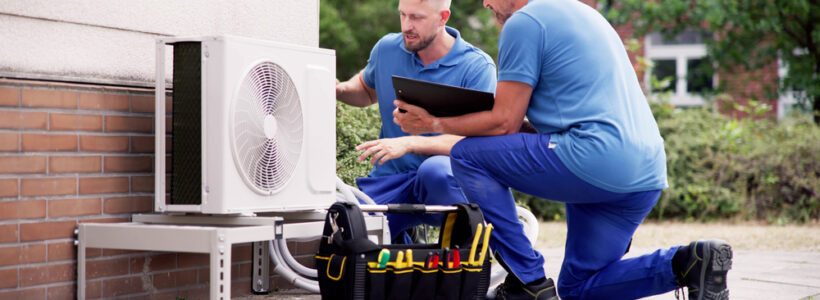What does SEER Rating mean?
SEER stands for Seasonal Energy Efficiency Ratio. It measures how efficiently an air conditioning system converts electricity into cooling power over a typical cooling season.
- Higher SEER rating: This means the unit is more efficient, uses less energy, and can save you money on your utility bills.
- Lower SEER rating: This means the unit is less efficient, uses more energy, and can cost more to operate.
Think of it like fuel efficiency in a car. A higher SEER rating is like getting better gas mileage.
Why does the SEER rating on the Energy Guide differ from the SEER rating my dealer quoted?
There could be several reasons why the SEER rating on the Energy Guide differs from the SEER rating your dealer quoted:
- Inaccurate Information: Sometimes, dealers might provide incorrect information or make mistakes in their calculations.
- Different Models: The dealer might have quoted you a different model with a higher SEER rating than the one listed on the Energy Guide.
- Regional Variations: SEER ratings can vary slightly depending on the region. If the Energy Guide is for a different region, the rating might be slightly different.
- Manufacturer’s Estimates: The SEER rating on the Energy Guide is an estimate based on laboratory testing. Actual performance can vary depending on factors like installation, usage, and local conditions.
To clarify the discrepancy, you should:
- Double-check the model number: Ensure that the model number on the Energy Guide matches the model the dealer quoted.
- Ask for clarification: Contact the dealer and ask them to explain the difference in SEER ratings.
- Verify with the manufacturer: Reach out to the manufacturer of the unit for accurate information about the SEER rating.
By following these steps, you can determine the correct SEER rating for the unit you’re considering and make an informed decision.
What is the life expectancy of my HVAC unit?
The average life expectancy of an HVAC unit is between 15 and 20 years. However, this can vary depending on several factors:
- Maintenance: Regular maintenance, including cleaning filters, servicing components, and addressing issues promptly, can significantly extend the lifespan of your HVAC system.
- Usage: How often and how hard your HVAC system works can impact its longevity. For example, a system in a hot climate or used frequently will wear down faster.
- Quality: Higher-quality units often have longer lifespans.
- Installation: Proper installation is crucial for optimal performance and longevity.
Signs that your HVAC system might be nearing its end of life include:
- Frequent breakdowns: If your system is constantly breaking down, it might be time for a replacement.
- Increased energy bills: A less efficient system can lead to higher energy costs.
- Uneven heating or cooling: If your home isn’t heating or cooling evenly, it could be a sign of a failing HVAC system.
- Strange noises: Unusual noises, such as banging or rattling, can indicate a problem.
If you’re experiencing any of these issues, it’s a good idea to have your HVAC system inspected by a professional to determine if it needs to be replaced.
What kind of filter do I need, and how frequently should I change it?
Determining the right filter for your HVAC system and how often to change it depends on several factors:
- HVAC System Type: The type of system (furnace, heat pump, etc.) and its size will influence the filter type and replacement frequency.
- Indoor Air Quality Concerns: If you have allergies, asthma, or other respiratory issues, a more efficient filter might be necessary.
- Pet Ownership: If you have pets, a higher-efficiency filter can help trap pet dander and allergens.
- Environmental Factors: Factors like outdoor air quality and the amount of dust and pollen in your area can affect filter efficiency.
Common filter types include:
- Pleated Filters: These are the most common type and offer good filtration for general use.
- HEPA Filters: High-Efficiency Particulate Air filters capture 99.97% of airborne particles, making them ideal for those with severe allergies or respiratory issues.
- Electrostatic Filters: These filters use an electrical charge to attract and capture particles.
General replacement guidelines:
- Pleated Filters: Every 1-3 months.
- HEPA Filters: Every 3-6 months.
- Electrostatic Filters: Every 6-12 months.
To get a more accurate recommendation, consider:
- Consulting your HVAC manual: It might have specific recommendations for filter type and replacement frequency.
- Asking an HVAC professional: A technician can assess your system and environment to provide tailored advice.
- Checking the filter’s label: Some filters have recommended replacement intervals.
By following these guidelines and considering your specific needs, you can ensure that your HVAC system is operating efficiently and providing clean, healthy air.
Why can’t I locate the correct size furnace filter at my local home improvement store?
There could be several reasons why you’re unable to find the right size furnace filter at your local home improvement store:
- Limited Inventory: Smaller stores might have a limited selection of filter sizes.
- Custom or Unique Sizes: If your furnace has a custom or unusual size, it might be more difficult to find a match.
- Incorrect Measurements: Double-check the measurements of your filter opening to ensure accuracy.
- Seasonal Availability: Some filter sizes might be more readily available during certain seasons.
- Online Retailers: Consider checking online retailers that specialize in HVAC supplies for a wider variety of options.
Here are some additional tips:
- Contact the Manufacturer: Reach out to the manufacturer of your furnace for specific recommendations on filter size and type.
- Consult an HVAC Professional: A technician can help you measure your filter opening accurately and recommend the best filter for your system.
By exploring these options, you should be able to find the correct size furnace filter for your needs.
What are the benefits of a programmable thermostat?
Programmable thermostats offer several benefits:
- Energy Savings: By scheduling your heating and cooling system to run only when needed, you can significantly reduce your energy consumption and utility bills.
- Comfort: With programmable thermostats, you can set different temperatures for different times of the day or week, ensuring optimal comfort throughout your home.
- Convenience: No more manually adjusting your thermostat. Programmable thermostats allow you to set and forget your heating and cooling schedule.
- Health Benefits: Maintaining a comfortable indoor temperature can improve sleep quality, reduce allergies, and enhance overall well-being.
- Eco-Friendliness: By reducing energy consumption, programmable thermostats help to minimize your carbon footprint and contribute to a more sustainable environment.
Overall, programmable thermostats are a valuable investment that can provide both energy savings and increased comfort.
What HVAC equipment requires regular maintenance?
All HVAC equipment requires regular maintenance to ensure optimal performance and longevity. This includes:
- Furnaces: Cleaning and inspecting burners, heat exchangers, and filters.
- Air Conditioners: Cleaning coils, inspecting refrigerant levels, and maintaining proper airflow.
- Heat Pumps: Cleaning coils, inspecting refrigerant levels, and ensuring proper operation in both heating and cooling modes.
- Thermostats: Checking for proper calibration and functionality.
- Ductwork: Inspecting for leaks, blockages, and proper insulation.
Regular maintenance can help:
- Improve energy efficiency: A well-maintained HVAC system uses less energy.
- Extend the lifespan: Regular maintenance can help prevent breakdowns and prolong the life of your equipment.
- Enhance indoor air quality: Clean filters and proper airflow can improve the quality of the air you breathe.
- Reduce noise: A properly maintained system should operate quietly.
It’s generally recommended to have your HVAC system professionally serviced once a year. However, the specific maintenance schedule may vary depending on factors like the age of your equipment, its usage, and local climate conditions.
How do I troubleshoot a problem with my HVAC equipment?
Here are some steps to troubleshoot common HVAC problems:
1. Check for Obvious Issues:
- Filters: Ensure filters are clean and not clogged. Replace as needed.
- Thermostat: Verify settings are correct and the thermostat is functioning properly.
- Power Supply: Check if the unit is receiving power.
2. Identify the Problem:
- No Heat or Cooling: Determine if the system is completely dead or if only certain areas are affected.
- Uneven Heating or Cooling: Check if the temperature is consistent throughout the home.
- Strange Noises: Listen for unusual sounds like banging, rattling, or squealing.
- Airflow Issues: Verify if air is blowing out of the vents as it should.
3. Consult Your User Manual:
- The manual provides specific troubleshooting tips and error codes for your HVAC system.
4. Reset the System:
- Sometimes, a simple reset can resolve minor issues. Consult your manual for instructions.
5. Check for Common Issues:
- Air Leaks: Seal any air leaks around windows, doors, or ductwork.
- Obstructed Vents: Ensure vents are not blocked by furniture or other objects.
- Refrigerant Leaks (for air conditioners and heat pumps): If you suspect a refrigerant leak, contact a professional.
6. Call a Professional:
- If you’re unable to resolve the issue yourself, contact a licensed HVAC technician. They have the tools and expertise to diagnose and repair complex problems.
Remember: Safety is paramount. If you suspect a gas leak or electrical problems, turn off the system immediately and contact a professional.
Why should I have regular maintenance? And how often do I need it?
Regular maintenance for your HVAC system offers several benefits:
- Improved Energy Efficiency: Well-maintained systems use less energy, saving you money on utility bills.
- Longer Lifespan: Regular maintenance can extend the lifespan of your HVAC equipment.
- Enhanced Comfort: A properly maintained system provides consistent heating and cooling, improving your comfort.
- Better Indoor Air Quality: Clean filters and regular maintenance can help improve the quality of the air you breathe.
- Reduced Noise: A well-maintained system operates more quietly.
- Preventative Maintenance: Regular maintenance can help identify potential problems before they become major issues, saving you money and avoiding unexpected breakdowns.
The frequency of maintenance depends on several factors, including:
- Age of the system: Older systems may require more frequent maintenance.
- Usage: Heavy usage can accelerate wear and tear.
- Local climate: Extreme weather conditions can strain your HVAC system.
- Manufacturer recommendations: Consult your system’s manual for specific guidelines.
Generally, it’s recommended to have your HVAC system professionally serviced once a year. However, for older systems or those in harsh climates, more frequent maintenance may be necessary.
Where can I get replacement parts for my Trane equipment?
Here are a few places where you can get replacement parts for your Trane equipment:
- Trane Authorized Dealers: These dealers often have a wide range of Trane parts in stock or can order them for you. You can find a dealer near you by using Trane’s dealer locator tool: https://www.trane.com/residential/en/dealer-locator/
- Online Retailers: Websites like Parts Town Canada and HVACDirect.com offer a vast selection of Trane replacement parts.
- Local HVAC Supply Stores: Many local HVAC supply stores carry Trane parts, especially if they specialize in commercial HVAC equipment.
- Trane Customer Service: You can contact Trane customer service for assistance in locating replacement parts or locating an authorized dealer.
When ordering parts, be sure to have the following information ready:
- Model number: This can usually be found on a sticker or label on the unit.
- Serial number: This can also be found on a sticker or label.
- Part number: If you know the part number, it will make the ordering process easier.
By following these steps, you should be able to find the replacement parts you need for your Trane equipment.
What does my HVAC warranty cover?
Your HVAC warranty typically covers:
- Defects in materials or workmanship: This means that if the unit is poorly constructed or uses defective materials, the warranty will cover the cost of repairs or replacements.
- Compressor: The compressor is a critical component of your HVAC system, and warranties often offer extended coverage for this part.
- Parts and labor: Most warranties cover the cost of replacement parts and labor for repairs.
- Transferability: Some warranties can be transferred to a new owner if you sell your home.
However, it’s important to note that warranties may not cover:
- Neglect or abuse: If you fail to maintain your system properly or misuse it, the warranty may be voided.
- Acts of God: Events like natural disasters or extreme weather conditions may not be covered by the warranty.
To get a clear understanding of your specific warranty coverage, you should:
- Review your warranty documents: Read through the warranty carefully to understand its terms and conditions.
- Contact your HVAC contractor: Your contractor can provide additional information about your warranty and answer any questions you may have.
- Check with the manufacturer: If you have any doubts, you can contact the manufacturer of your HVAC system directly.
By understanding your warranty coverage, you can be better prepared to address any issues that may arise with your HVAC equipment.
Which Trane equipment will best fit my home?
Determining the best Trane equipment for your home depends on several factors:
- Home Size and Layout: The size and layout of your home will determine the capacity of the HVAC system you need.
- Climate: Your local climate will influence the type of equipment (e.g., furnace, heat pump) and its efficiency rating.
- Energy Efficiency Goals: If you’re looking to reduce your energy consumption and save money on utility bills, a high-efficiency system is a good choice.
- Indoor Air Quality Concerns: If you have allergies or other respiratory issues, a system with advanced air filtration features can be beneficial.
- Budget: The cost of the equipment and installation will also be a factor to consider.
Trane offers a wide range of HVAC equipment, including:
- Furnaces: Gas, oil, and electric furnaces for heating.
- Air Conditioners: Central air conditioners for cooling.
- Heat Pumps: Efficient heating and cooling systems that can save energy.
To find the best Trane equipment for your home, it’s recommended to consult with a Trane authorized dealer. They can assess your specific needs and recommend the most suitable system for your home.





